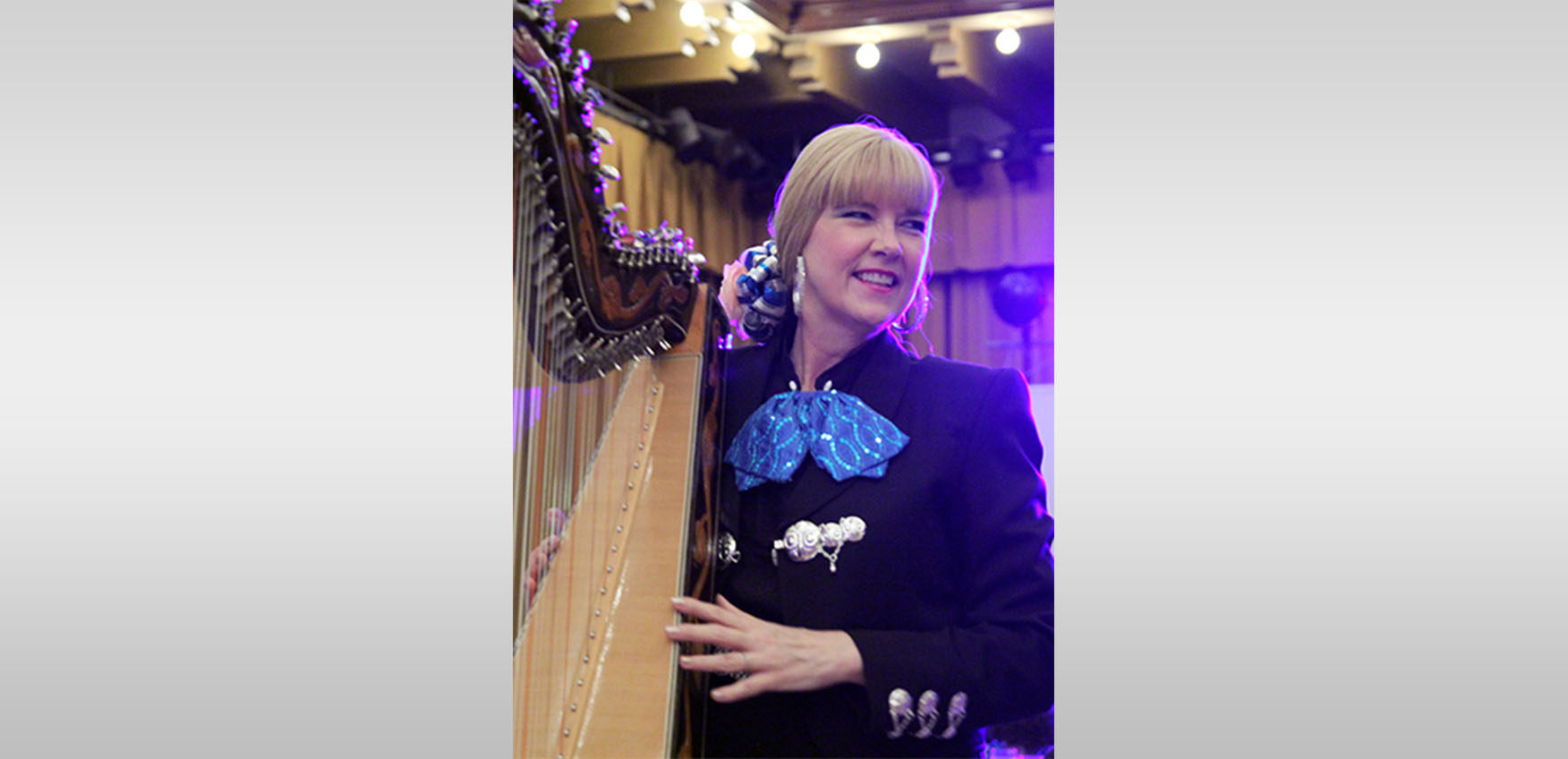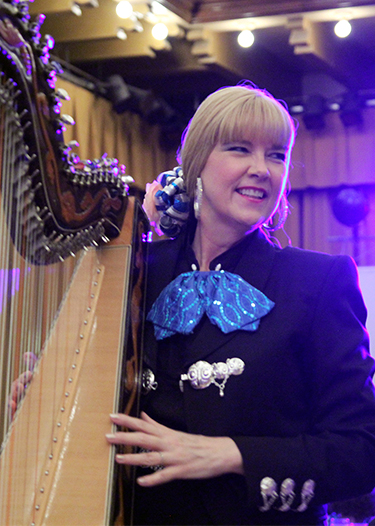Life, Laughter, and Dressing Up for Chemo


“Life was great, and then I was diagnosed with cancer,” says San Antonio resident and professional mariachi harpist Linda Hart-Garrahan of the day in 2012 when she learned she had non-Hodgkins, large B-cell, diffused lymphoma. “Life is still great. It’s just that I have lymphoma.”
While some might choose to avoid speaking again of such a day, the memory of her diagnosis brings to mind a chuckle-laden family story Hart-Garrahan is delighted to share. “Oh, that’s the best part,” she begins, fighting back the laughs. “My family is Norwegian, right? So we put cod liver oil on everything. I have this lump growing on my neck. I call home, and they say to put cod liver oil on it. So I did. Every day. Can you imagine? A month later, the lump is still there. So I call home again. The best response they could muster was, ‘Did you remember to heat the oil?’” She pauses and lets the giggles pass before sharing how her family doctor confirmed the diagnosis. “He handled it so sweetly: ‘Linda, you have lymphoma, and I’m sorry.’ Then he hugged me.”
So it goes in Hart-Garrahan’s life these days. There are challenges and tough days, to be sure. But life has texture. Even the challenging parts can be fun. And she wants people to remember the importance of enjoying life – and living – no matter what may be in store.
Just days after her diagnosis, Hart-Garrahan sauntered into her first chemotherapy session dressed to the hilt with her nails, hair, and makeup all spot-on. “The nurses had told me to approach it as if it were the most important appointment of my life, and I took them at their word. It seemed like a little thing at the time, but I realize now it completely changed my outlook on treatment.”
Some seven years later, Hart-Garrahan continues to manage her life with lymphoma, with the help of a team of experts at UT Health San Antonio MD Anderson Cancer Center. As of summer 2019, she is starting her fifth round of treatment. To date, Hart-Garrahan has undergone numerous types of treatments, both conventional and experimental. Many of those treatments have been aggressive and physically demanding. “My cancer is stubborn,” she says. “Every time we go after it, it decides to change a little. But I have never thought this was the end. That’s the beauty of research and a place like UT Health San Antonio MD Anderson Cancer Center. There are always new things to try, new things that can be done.” And attitude plays no small part, in Hart-Garrahan’s opinion.
“Outlook is really important. You believe the picture you paint,” she says. “Whenever I have a hard day with my symptoms or my treatment, I challenge myself to meet each negative thought with three positive ones.” She offers as an example her weeks in sterile isolation following a stem-cell transplant, which taxed her body and temporarily decimated her immune system. “First of all, I asked to have my harp with me, which helped me relax and gave me an outlet for my emotions. Then, I was able to think about my time alone as a chance to practice. I found that I was also grateful to have an opportunity for real solitude, a break from the busyness and noise of daily life.”
As with many of her recollections, the story of Hart-Garrahan’s re-emergence into the world following her isolation starts with plenty of laughs and ends with an important reminder about the inherent sweetness of humanity. “My first week back, the best mariachi band in the area asked me to perform in a music video. I was really honored, but I was thinking, ‘You’ve got to be kidding me. I look like a thumb with eyeballs.’ I didn’t even have eyebrows or eyelashes.” The band told Hart-Garrahan they didn’t care; they wanted her for the shoot and assured her she would look and feel as beautiful as ever if she could just trust them.
“It was wonderful. By the time they finished with me – fake eyelashes, an amazing blonde wig that matched my natural color, professional makeup, the works – I looked in the mirror, and I felt like myself again for the first time in a very long time. The shoot went without a hitch, and we all had a lovely time doing it.”
The lesson for Hart-Garrahan was about the importance of letting go of your fears and allowing people to do what they do best – help one another. “I couldn’t have come this far without the care and support of my husband, my daughter, my friends, or the team in San Antonio.” Her experience, she says, has also inspired her to help others in a unique and distinctive way.
“I volunteer to play my harp at people’s funerals. It’s a nice way I can give back to the community and help people when they are struggling. I don’t take a dime from the families, many of whom could never have afforded a professional musician to play at their loved ones’ funerals. And I don’t tell them in advance I’m coming. I feel like the element of pleasant surprise is meaningful.”
The outreach also keeps Hart-Garrahan active and social, which she stresses is critical to surviving well with cancer. “It’s very important to not isolate. Find a creative outlet. Lean into your faith, whatever that looks like. Connect with people. Take walks, even if you can only take a few steps. Trust me, getting out there and getting moving is good medicine. Think about so many of life’s most joyful moments – our first steps, learning to ride a bike, getting a drivers license, our first trip on a plane – they’re all about claiming our own mobility. So keep moving. Discover ways to get out of your own head. Commit to finding joy and giving joy each day.”
“Sometimes,” says Hart-Garrahan, “it’s hard to come up with anything other than, ‘Well, at least I’m vertical today,’ but, for me, it is usually enough to bring me back. The bottom line is that I am not defined by cancer. I am a person who has a rich, full life and who also just happens to have cancer.”
To learn more about the family of experts at UT Health San Antonio MD Anderson Cancer Center, or to schedule an appointment, visit cancer.uthscsa.edu, or call 210-450-1000.

 Close
Close